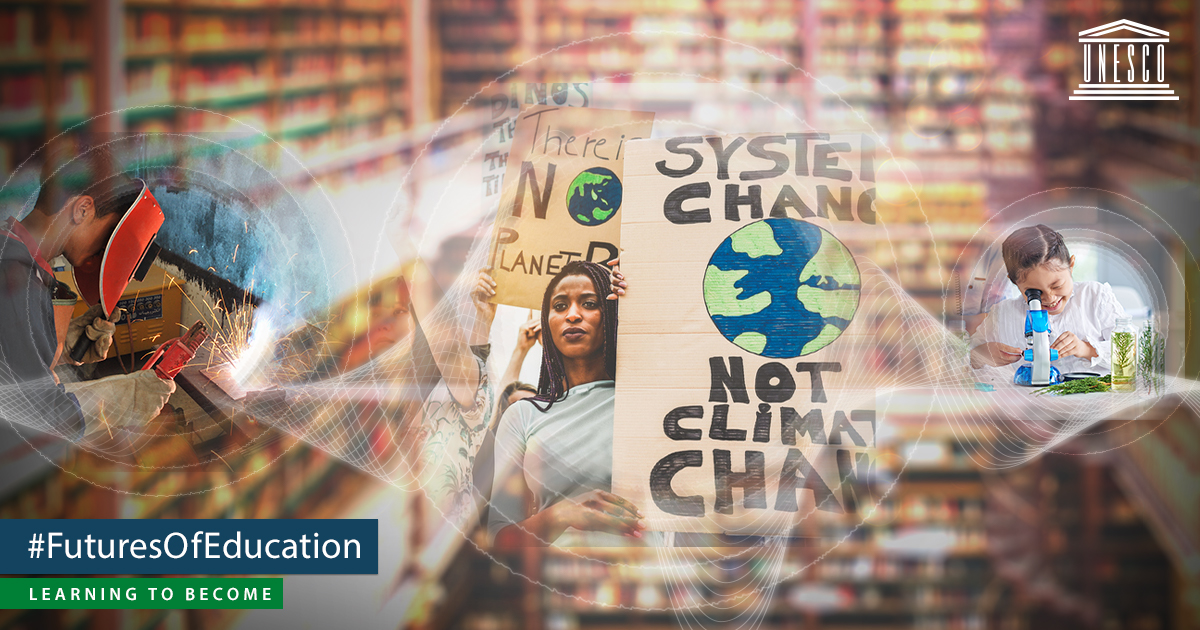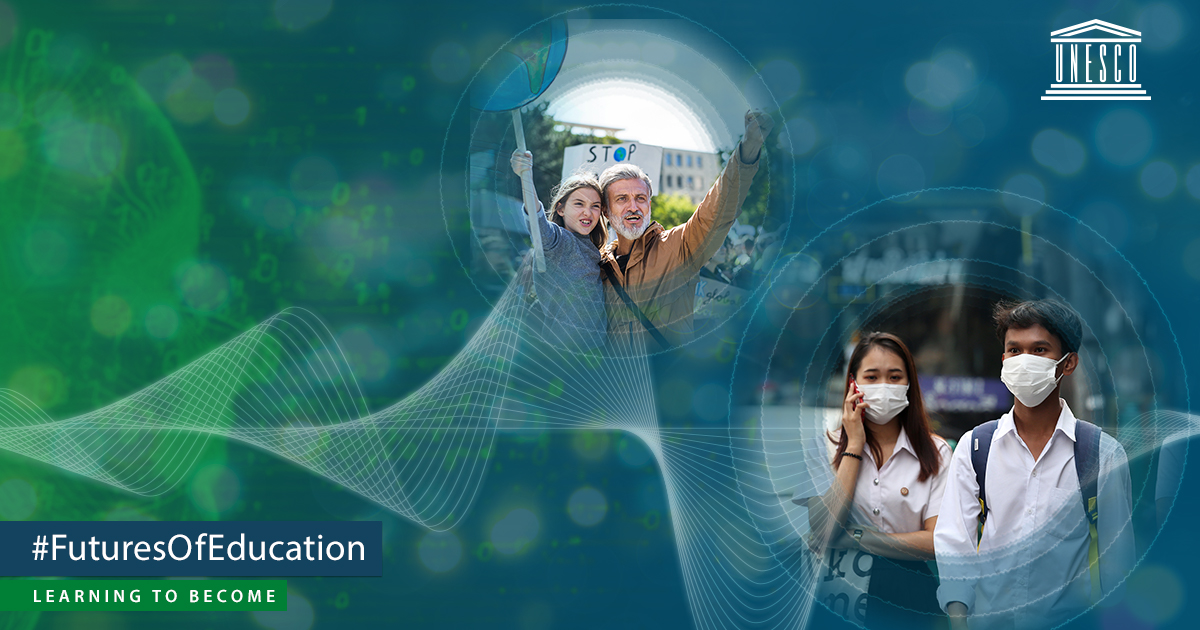
GCED Basic Search Form
Quick Search
Vous êtes ici
Nouvelles
UNESCO’s Futures of Education initiative aims to stimulate and capture global conversation on re-imagining education, learning and knowledge for an increasingly complex and unpredictable world. Transformative education lies at the heart of this process. It promotes the change and necessary development of individuals, communities and systems, and will be key to implementing meaningful and lasting change.
First launched in September 2019 at the High-level Political Forum (HLPF) on Sustainable Development in New York, UNESCO appointed an independent International Commission with the mandate to develop a global report on the Futures of Education for release in 2021. This report will provide an agenda for action and discussion by policy makers and practitioners.
As part of the initiative, UNESCO are looking for a diverse range of perspectives on the challenges and opportunities for the future of education and learning. People from around the globe are encouraged to lead or participate in focus groups, which will inform the commission’s final report.
With submissions open until 30th June 2020, this is an exciting opportunity for both individuals and organisations who believe in the power of transformative education to mobilize their stakeholders and networks, and contribute to the global conversation on what the futures of education can, and should, look like.
There are multiple ways to participate in this process. Those interested in leading a consultation group will receive an easy to follow facilitation plan and reporting template from UNESCO. However, you can also submit a written response, artwork or complete a short online survey on UNESCO’s website.

Experiences From Finland
In Finland, civil society engaged in Global Citizenship Education recently contributed to UNESCO’s Futures of Education initiative by coming together for an online consultation in April. Organised by Fingo and facilitated by Sanna Rekola, Fingo’s Advocacy coordinator on GCE, this workshop united civil society and GCE actors in Finland to reimagine what the future of learning could look like in 2050.
UNESCO’s Future of Education video set the tone, followed by an introduction from Director of Advocacy at Fingo and Chair of Bridge 47 Rilli Lappalainen, who encouraged participants to use their imagination when envisioning what the future could look like.
Participants were first asked to share their hopes and concerns for the future. While many felt optimistic about new technologies and an increased awareness of global interdependencies and responsibilities, they also expressed concerned over climate change, growing inequalities and populism that drives short term policy making. They were then split into smaller working groups.
The first group chose to discuss the purpose of learning and education. Their ideas included stimulating curiosity, creativity and open mindedness, the importance of empathy towards other people and the planet, the ability to self-reflect and unlearn behaviours and attitudes negatively affecting the planet, and to act as agents of change.
The second group considered what we should learn. They emphasised the need to be able to dream, to be curious and creative, to learn how to cooperate with others, and gain the skills and knowledge to feel and act as a global citizen.
The third group explored how we learn, touching on the importance of a future focused approach, and how we can learn from the Coronavirus pandemic.
The final group looked at where we learn, highlighting how recognising the value of formal, non-formal and informal education means learning can take place anywhere. With the recent uptake of online learning, some participants also voiced concerns over completely digitised education system, suggesting a balance between physical and online learning would be key.
Finally, Fingo asked participants to consider how NGOs and CSO’s can be actors of change for the future of education and learning. "While our current reality might feel quite uncertain, participants still felt motivated and responsive when tasked to envision a future far beyond the present day", Sanna reflected. "The current crisis demonstrates that people are resilient and can adapt quickly to a crisis. This should inform how we plan for the future", she concluded.

Adapting the Plan for an Online Workshop
While UNESCO’s facilitation plan is meant to inform an in-person workshop, here are Sanna’s top tips for online success:
- Give yourself more time. The facilitation plan suggests the workshop should only take an hour, however Fingo’s online workshop took two and a half hours. This was to accommodate any technical difficulties and allow for a break halfway through the session.
- Online tools are your friends! During the workshop, participants were split into working groups using Zoom’s breakout room function, and the discussions were self-recorded by participants on Jamboard.
- More than one facilitator. While Sana facilitated the workshop, someone else from Fingo offered technical support on Zoom, responsible for managing the breakout rooms and monitoring the chat box.
- Don’t skip the icebreakers. Sanna recommends taking the time to warm up, as soft exercises help build a trusting environment for sharing ideas, especially among strangers.
- Take advantage of this opportunity. Fingo also used this workshop to ask participants to consider how civil society can be actors of change in the Futures of Education process - an important question that was not included in the facilitation plan. Don’t be afraid to ask questions outside of the facilitation plan, as long as they are relevant to the discussion.
How to Engage
Focus group – Download UNESCO’s consultation guidelines.
Survey – Answer a one-minute survey on UNESCO's website.
Written response – Submit your ideas on the future of education in writing on UNESCO's website.
Artwork – Create an artistic depiction of what education, learning and knowledge might look like in the year 2050, and submit this on UNESCO's website.
URL:
